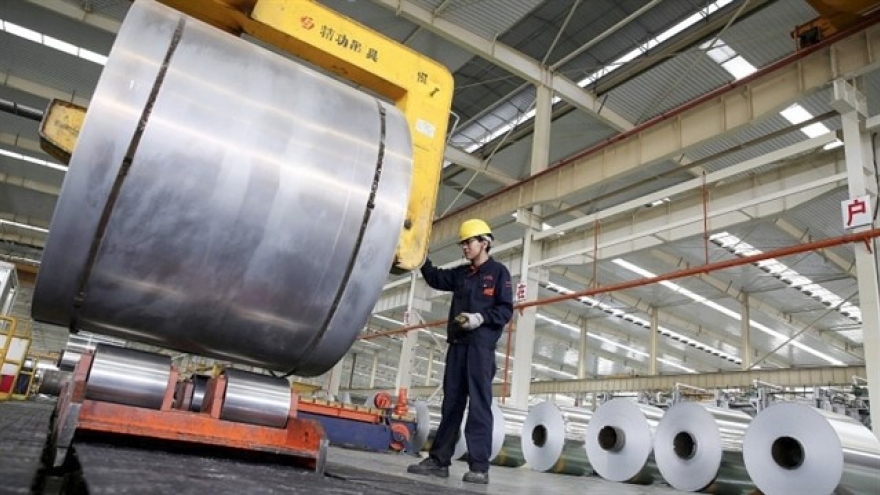Vietnam trade ministry extends anti-dumping duties on Chinese steel to 5 years
The market share of domestic companies witnessed a decrease during the 2018 - 2019 period and currently reaches 42.8%, indicating foreign companies are selling below their home markets prices.
 |
Following the decision, the tax rate applied to cold-rolled stainless steel from China is 31.85%, but for Tisco Stainless Steel (Hong Kong), it is 17.94%.
For Malaysian companies, it is 22.69%, and 11.09% for Acerinox SC Malaysia Sdn.Bhd. Indonesian companies are subject to tax rate of 25.06%, except Jindal Stainless Indonesia which will be levied 10.91%; and a 37.29%-tax rate is applied for all Taiwanese companies.
According to the MoIT, five years on since its imposition of anti-dumping duties, the domestic steel production sector has gradually recovered but the growth rate remains instable and is on a declining trend.
In the 2018 – 2019 period, the maximum production capacity reached only 69.4%, with production growing 1% and sale volume down 5%.
The market share of domestic companies also witnessed a decrease during the period and currently reaches 42.8%, indicating the foreign companies are selling below their home market prices. .
The MoIT concluded such act would continue in the future and cause severe consequences for domestic producers without anti-dumping duties in place.
Moreover, there is a close link between dumping act from foreign companies and the potential damage to local production, stated the MoIT.
In early October, the MoIT also imposed anti-dumping duties on Chinese extruded aluminum bars at rates ranging from 2.49% to 35.58%, following complaints from local producers filed last October.
Vietnamese legislation on foreign trade management stipulates that the Ministry of Industry and Trade could apply anti-dumping duty retrospectively to the imported products if they are determined to cause possible significant loss or serious injury to domestic industry.
Therefore, the ministry warned organizations and individuals to consider the possibility of being slapped anti-dumping duties when signing import, distribution and business contracts as well as using the investigated goods.




